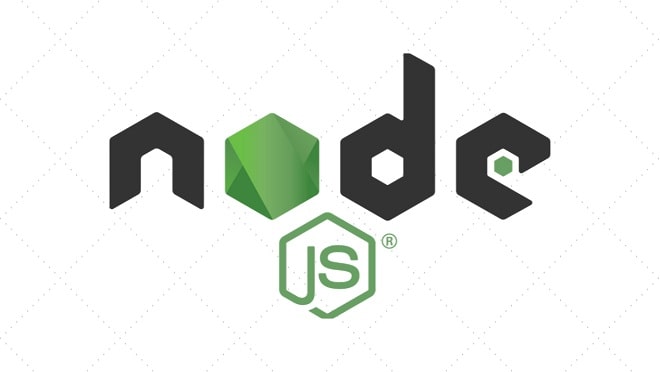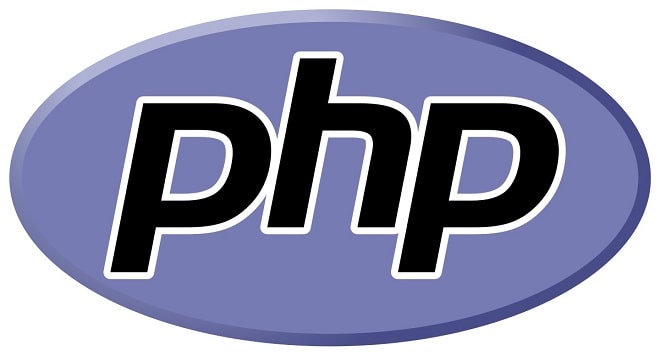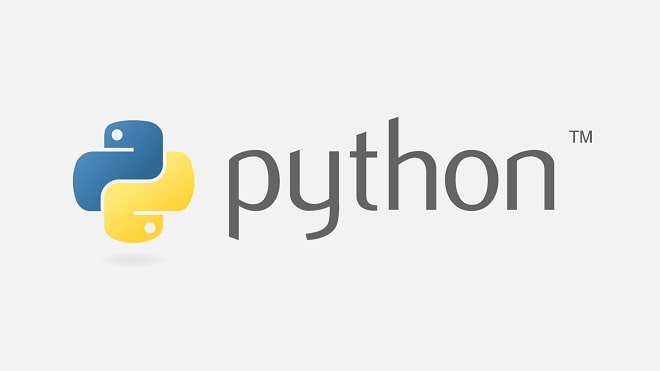Today, coming up with a game-changing app idea for your web application is just half the battle. You’ll have to make numerous crucial decisions to make your idea a great success.
Choosing the right technology stack – especially backend technology that powers your entire web application would be the first and foremost decision. It’s not an easy feat as there are many backend technologies out there with popular ones – Node.js vs. PHP vs. Python.
To help you pick the right backend technology for your dream project, we came up with this comparison – Node.js vs. PHP vs. Python – based on numerous factors such as community support, market popularity, architecture and more.
Is it your first time choosing the technology for the backend part of your web development project? If so, we recommend you have a look at what backend development means before you proceed further to more technical aspects.
What is Backend Development?
Also known as a server-side development of websites and apps, backend development is everything that’s not visible to users and happens behind the scenes when users perform any action on a website. Thus, the primary role of backend developers is to make sure that end users get the information they requested without a hassle.
Backend developers possess expertise in backend languages and frameworks to help you build the backend structure of your web application.
Did you know? According to the 2021 JetBrains Developer Ecosystem Survey, 71% of developers work on the backend part of web development.
Thus, it means you can easily find a backend developer. But before you hire a backend developer for your project, it’s important to first figure out which backend technology is ideal for your web development project. Read on to make an informed decision!
Also Read (That Might Interest You): How Much Does It Cost to Hire a Web Developer?
An Overview to Node.js vs. PHP vs. Python
Node.js, PHP and Python are popular backend technologies that are used to build web applications. Each framework has its own unique advantages and limitations.
Before getting to the in-depth comparison of Node.js vs. PHP vs. Python, let’s first have a look at a quick overview of each technology. This will help you understand key differences between each technology.
What is Node.js?
Node.js is a cross-platform, open-source and backend JavaScript-based runtime environment for building server-side and networking apps. It provides an extensive library of numerous JavaScript modules that simplifies the web application development process.
Developers prefer Node.js as it operates on a single thread – able to handle concurrent events simultaneously.
Here are key features of Node.js:
- Asynchronous and non-blocking I/O system that ensure scalability and high performance
- Support both frontend and backend in JavaScript
- Cross-platform framework to develop applications for Windows, Mac and Linux
- Highly customizable
- Eradicates the need to re-execute the code with its caching facility
What is PHP?
PHP or Hypertext Preprocessor is a server-side scripting language. This general-purpose scripting programming language that can be easily embedded with the HTML codes is ideal for building dynamic websites and web applications.
It is an open-source and cross-platform language. Thus, applications built using PHP can run across different platforms including Windows, Linux and more.
Here are key features of PHP:
- It includes pre-written and ready-to-use codes that speed up the development
- Support many database services which include MySQL, Oracle, Sybase and more
- Comes with in-built security features for protection against common security threats such as SQL injections, data tampering and more
- PHP based applications are supported by numerous cloud services such as AWS
What is Python?
Python is a general-purpose, high-level, object-oriented programming language often used to develop websites and software, perform data analysis and automate tasks. Thus, it is not confined to backend web development.
When it comes to web development, Python’s role can include but not limited to processing data, interacting with databases, sending data to/from servers, URL routing and more.
Here are key features of Python:
- Simple syntax, making Python easier to understand and learn
- Comes with a lot of in-built modules and libraries
- Platform-independent – means applications built using Python run across different platforms including Windows, Mac and Linux.
- Dynamically typed language – unlike Java.
Node.js vs. PHP vs. Python – A Detailed Comparison
Now, let’s go more in-depth and compare all these backend technologies on the basis of key factors that you should consider while determining which one to pick for your project.
1. Use Cases
Have a look at common use cases of Node.js, PHP and Python as the backend technology for web development and some of the widely known apps built with these technologies.
Node.js
There are widely popular apps built using Node.js including but not limited to Netflix, PayPal, Uber, Groupon, NASA and LinkedIn.
Therefore, Node.js as backend technology is ideal for building:
- Real-time chat and collaboration applications
- Social media applications
- Ridesharing apps
- IoT apps
- Microservices
PHP
Famous apps and websites built using PHP include but are not limited to Facebook, Tumblr, Slack, WordPress, Etsy and more.
Therefore, PHP as backend technology is ideal for building:
- Content management systems
- GUI-based applications
- Websites & web applications
- eCommerce applications
- Data representation
Python
Python is the preferred programming language over others to develop the backend part of websites and web apps for many leading companies such as Google, Spotify, Netflix, Facebook and more.
Considering that, Python as backend technology is ideal for building:
- MVP development
- Enterprise applications
- Game development
- Websites & web applications
2. Market Popularity and Community
Let’s have a look at the popularity of each technology in the market and how vast is community around each backend technology.
a) According to Google Trends
As per Google Trends, the interest over time for Python has remained high over other backend technologies – Node.js and PHP for the last five years.
b) According to the Developer Survey by StackOverflow
Node.js
As per the 2021 Developer Survey by StackOverflow, Node.js is the sixth most popular technology among developers.
PHP
According to the same survey, PHP is the eleventh most popular technology among developers. PHP is used by 21.98% of developers. Witnessing the trend, the number will drop – in 2018, it was 30.7% and 26.2% in 2020.
Python
As per the same survey, Python is the third most popular technology among developers.
3. Architecture
When selecting backend technology, it’s important to look at what type of architecture does technology support as it influences the overall performance and scalability of the web application. So, let’s have a look!
Node.js
Node.js uses the Single Threaded Event Loop architecture to manage multiple concurrent requests without any limitation. Also, it allows developers to use an MVC or MVP architecture model.
PHP
When it comes to PHP, there are so many frameworks to choose from including Laravel, Codeigniter, CakePHP and most of them support MVC architectures.
Also Read (That Might Interest You): How Much Does It Cost to Hire a Laravel Developer?
Python
Unlike Node.js, Python doesn’t support multithreading. Like PHP, there are many Python frameworks with Django being the most popular one that follows Model View Template (MVT) architecture.
4. Database Support
When working with a database, you would indeed like to know whether the backend technology you have selected is supported by databases you’re familiar with. Isn’t, it right? So, let’s have a look at database support for each technology.
Node.js
Node.js provides support for all kinds of databases –irrespective of the relational database or NoSQL database. Which one you should pick depends upon the purpose and complexity of your web development project.
PHP
PHP provides support for many databases including MySQL, Oracle, Db2, MariaDB, SQLite, MongoDB and PostgreSQL.
Python
Yes, Python supports numerous databases including but not limited to SQLite, Oracle, Sybase, MySQL, PostgreSQL and more.
5. Budget Consideration
Before hiring a backend developer for a particular skill – Node.js vs. PHP vs. Python, you should know the average salary of the skill. This, in turn, will help you define the budget for your dream web development project.
As per the 2021 Developer Survey by StackOverflow, Node.js, PHP and Python are all ranking in the list of top paying technologies with Python beating the other two.
Node.js
With developers around the world showing a keen interest in Node.js, finding Node.js developers for your development needs is quite easy. As Node.js is one of the highest paying skills, be ready to spend some extra bucks if you want to hire a Node.js developer.
Nevertheless, the technical skillset of Node.js developers include:
- Knowledge of Node.js frameworks such as Express
- Knowledge of asynchronous programming and front-end technologies
- Database management
PHP
While there are now many newer and more interesting backend frameworks and technologies, PHP still has a demand in the market. It also means you won’t find much hassle while hiring a PHP developer for your needs.
The technical skill set of PHP developers include:
- Expertise in PHP and MVC architecture
- Knowledge of front-end technologies such as CSS, HTML, JavaScript
- Familiarity with databases – SQL/NoSQL
Python
Being one of the oldest programming languages, Python has a large community. It also means you can easily find junior to senior-level backend developers for hire. The technical skill set of PHP developers include:
- Strong expertise in Core Python
- Good knowledge of web frameworks
- Expertise in front-end technologies
A Quick Comparison – Node.js vs. PHP vs. Python
Here’s what you should know from a detailed comparison of three popular backend technologies.
| Attributes | Node.js | PHP | Python |
| Type | JavaScript Runtime Environment | Programming Language | Programming Language |
| Architecture | Single Threaded Event Loop & MVC/MVP | MVC | Doesn’t Support Multithreading |
| Database Support | Yes | Yes | Yes |
| Use Cases | Netflix, PayPal | Facebook, WordPress | Spotify, Google |
| Scalability | Easy | Easy | Easy |
| Error Handling | Challenging | Bit Challenging | Easy |
| Speed | Faster than both | Faster than Python, Lower than Node.js | Fast |
| Universality | Cross-platform, full-stack | Cross-platform, back-end | Cross-platform, full-stack |
| Learning Curve | Simpler | Simpler | Simpler |
Popularity (As Per Google Trends) | Low | Medium | High |
| Popularity (As Per 2021 StackOverflow Survey) | Medium | Low | High |
| GitHub Stars | 81.8k | 31.3k | 40.3k |
| Community Support | Strong | Strong | Strong |
| Budget Requirement | High | Low | Higher than both |
Node.js vs. PHP vs. Python – Which One is Better in 2021?
Every backend technology mentioned here is being used by industry leaders. So, one thing is sure that all of these technologies are great options when it comes to the backend part of web development. And which one is ideal for your particular project? It depends on the specifics of your project – especially the kind of web application you want to develop.
Considering the previous use cases, every technology is admired by businesses across different verticals. So, no matter what your business genre is, you can give thought to all of these backend technologies. This will also help you make a more informed decision.
You should know that you can always take expert advice from InfoStride’s technology experts on picking the right technology stack for your project – especially if it’s your first time.
A Cost-Effective Development Approach: Hire Remote Developers
Hiring an in-house developer can burn a hole in your pocket considering all the related costs you would have to bear – training costs, infrastructure costs and high local employment rates. That’s the reason why companies now embrace remote working and tend to hire remote developers.
You can save a lot by hiring developers elsewhere – especially in a country with lower wages like India while saving on training and infrastructure expenses.
We at InfoStride strive to help companies of any size deploy a dedicated remote development team with flexible engagement models to choose from. Whether you want to hire remote developers on a full-time, hourly, part-time or project basis, you can count on us.
What you’ll get by hiring remote developers from InfoStride:
- Well-trained and experienced developers with the skill required for your project
- Remote-ready infrastructure for your remote team to start working on your project
- Onboard remote developers who will work according to your time zone and possess strong communication skills to avoid the language barrier
- Developers for every phase of your project – design, development, testing, maintenance and support
- We take on all legal employment concerns – onboarding, payroll, compliance to offboarding
Interested? Get in touch with us today to discuss your project requirements or clear any doubts you have in mind about hiring remote developers.
Also Read: How to Recruit and Hire Remote Employees – Then Retain Them?
Conclusion
When it comes to stating the best backend technology among Node.js, PHP and Python, there is no straightforward answer to that.
You should make a decision only after carefully evaluating the specifics of your project that involves everything from an app idea to budget requirements. Whatever you decide, you can then hire a remote backend developer with the skill and expertise required to turn your app idea into reality.
What are your thoughts on Node.js vs. PHP vs. Python? Is there any clear winner among all these backend technologies? Let us know in the comments below!
THE AUTHOR
harish6854








